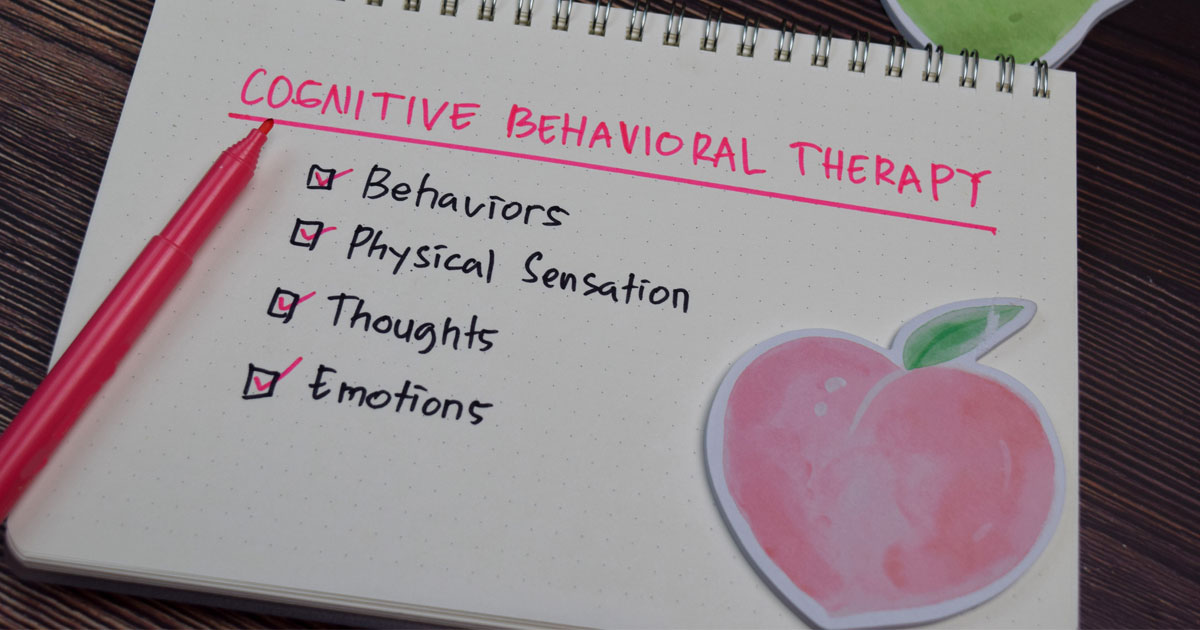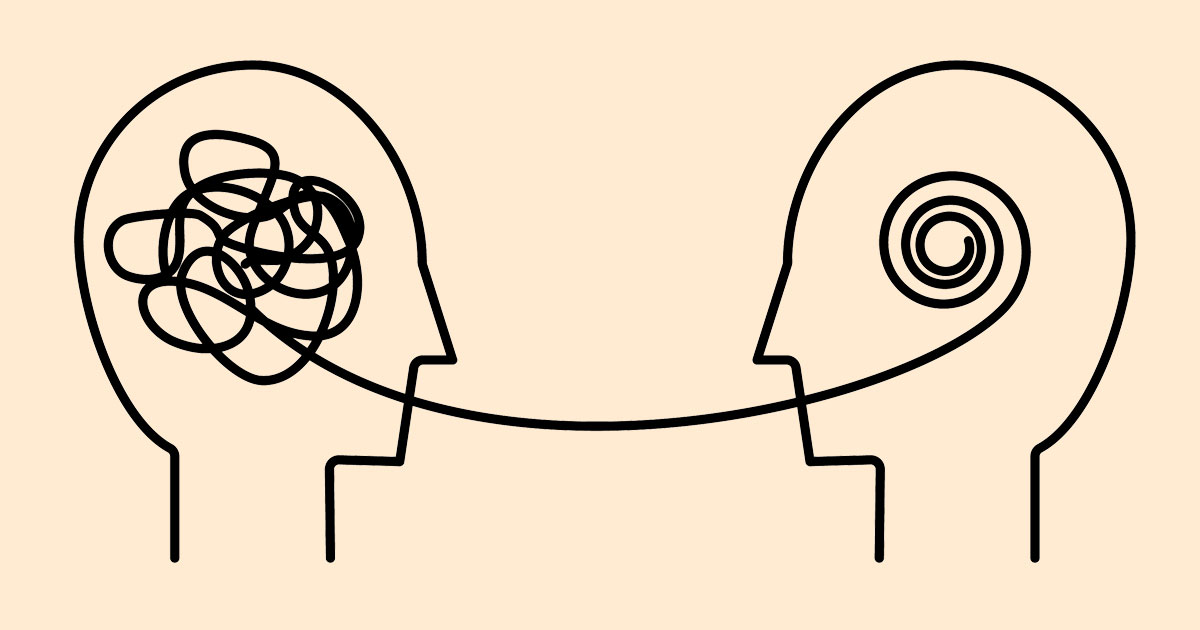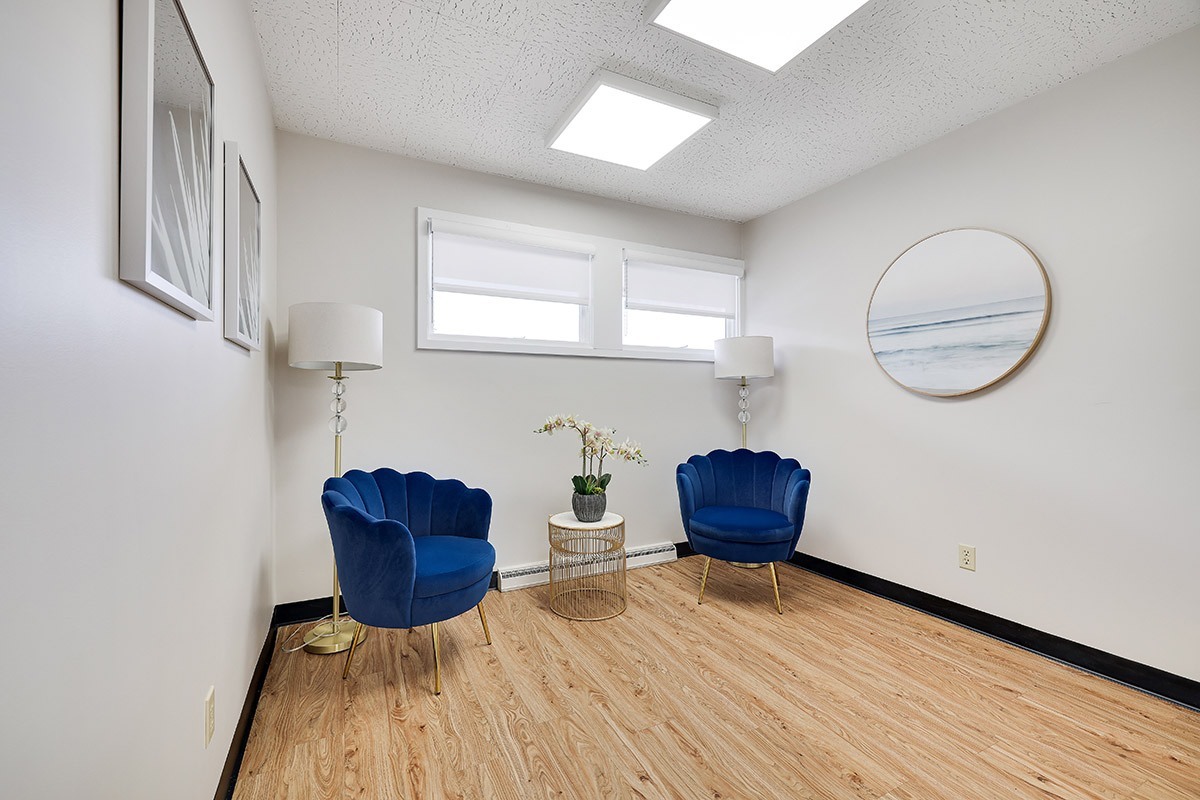Basic Principles of Cognitive Behavioral Therapy
Cognitive behavioral therapy is one of the most common forms of talk therapy, also known as psychotherapy. Within substance use disorder treatment, it is in place to assist with uncovering the cognitive reasons or underlying circumstances that have worked together to create a dependence on substance use rather than healthy coping skills.
This therapy focuses on talking through a patient's mental health condition and frustrations as a means to chart the life events and emotional issues that may have served as triggers for substance use. Combined with other therapies, CBT can help the individual identify solvable issues and how the brain is wired to seek substances as a solution. Then, an effort can be made to rewire the brain by learning and incorporating healthy responses to negative situations that can keep the individual away from substance use long after rehabilitation treatment ends.
Through CBT, you can consciously address dysfunctional thoughts and analyze your own behaviors and beliefs to help better understand the catalysts that drove you to substance use in the first place. When you are able to identify negative behaviors or thoughts that act as a trigger to substance use, you can find ways to alter your perspective and change your thought process. Then, you can change the way you respond.
CBT can also incorporate mental wellness practices, like yoga and meditation, that assist with managing issues like intrusive thoughts, anxiety, or depression, which all can act as triggers to return to a substance. Once you have explored how to address these issues positively and learned healthy coping skills to apply in negative situations, you have the tools necessary to begin recovery and prevent relapse during future stressful or emotionally difficult times.
What Are the Steps of Cognitive Behavioral Therapy?

While Recovery Cove approaches every individual’s recovery with a personalized approach to SUD treatment, CBT is a research-backed clinical practice that unfolds similarly with each patient. Here are the steps involved with CBT.
The Initial Assessment
The first step when beginning CBT is to meet with a therapist. Your therapist will help you assess your personal journey with SUD, noting any specific patterns or circumstances where negative thoughts or behavior patterns have affected your mindset and thought process. While discussing your history with you, the therapist will analyze how you see and process the world, as well as your view of yourself. After this review, the therapist will create a specialized treatment plan that will serve as a customized course of action to address difficulties, mental health, and relevant past trauma.
Establish And Develop New Concepts
Once a plan is in place, the therapist will work with you to reevaluate how you see your own situation, as well as identify harmful views and thought processes. The therapist will coach you to handle negative thought patterns and replace them with healthier, positive thoughts. By shifting your mindset toward a positive understanding of the situation, you are building a strong habit and forming a new cognitive pathway. You’ll be able to tackle negative thoughts in a constructive and informed way. It is also common during this step for your therapist to ask you to use a journal to record various issues and list alternative ways to handle them.
Acquire New Skills
While steps one and two serve to restructure how you view and analyze situations, the third step is when you begin to understand how to handle those situations in real life. Solutions can include active ways to reroute negative thoughts, analyzing a negative thought in real time to course-correct the thought process or ways to incorporate healthier behavior patterns. This is also the step where signs of positive change and healing start to show.
Using These New Skills To Handle Stressful Situations
You will continue to develop additional skills that help you take your newfound ability to handle negative emotions out of your mind and into direct action-oriented activities and alternatives. For example, if you previously handled stress with substance use, an alternative might be going for a walk, working out at the gym, or discussing these issues with a friend. This is the full implementation of CBT and is direct action put in motion to rewire the brain and fully change behavior.
Staying The Course
By the fifth stage, you will likely be comfortable with your CBT treatment. You should be easily using the skills you’ve developed with confidence and have fewer worries that old thought processes or negative behaviors will return. This is also when you are ready to cease visiting your therapist specifically for CBT.
Check-Ins
Though regular CBT-specific appointments will taper off, that doesn’t mean your therapist won’t check in from time to time. In this stage, you will establish follow-up appointments so your therapist can give feedback on how you are using your skills, as well as offer coaching and guidance for how to handle any new situations that may have come up. Eventually, after you’ve consistently demonstrated your use of the acquired skills, your CBT treatment will be complete.
How CBT Benefits Individual Addiction Treatment

There are a number of ways CBT can help you find recovery by tackling the roots of your behavior during SUD. These can range from addressing major mental health issues to providing a higher quality of life through reflection and adjusting the way you see the world.
The first major CBT benefit is its therapeutic use in cases of depression. Depression is one of the most common precursors to SUD, as well as one of the most frequent precursors to relapse. Substance use disorder in depression often occurs when overwhelming emotional feelings, or a lack thereof, lead a person to alcohol and drugs as a means to self-medicate. CBT can help you identify and understand negative thought patterns and handle them with healthier behaviors.
Substance use disorder is also prevalent in people with anxiety disorders. When a propensity to anxiety is accompanied by work or family stress, or other emotions trigger anxiety, many people look to substances to calm the anxious response. People dealing with frequent anxiety responses can benefit from CBT by learning to recognize and analyze incoming anxious or negative thought patterns. Then, cognitive retraining can help you identify healthier means of combating anxiety through positive behavior like exercise, meditation, and more.
Emotional trauma is another major precursor to SUD. Whether the emotional trauma comes from past abuse, physical danger, witnessing others’ traumatic experiences, or something else, CBT helps to coach you away from dwelling on guilt, fear, and avoidance via substance use. Instead, you’ll learn to confront and process negative emotions or memories and develop healthy coping mechanisms that will help your brain learn new responses.
Is CBT Effective for Substance Use Disorder?
Research reveals that CBT is an effective component of substance use disorder treatment. A recent study explored a large group of people using CBT in combination with other general drug counseling. Results revealed that a full 60% of patients passed a substance use screening 52 weeks after completing CBT.
CBT is a critical tool for SUD recovery, especially when paired with medical intervention, individual and group therapy, holistic therapies, and other treatments. It is also one of the most effective tools for managing long-term recovery. By altering the damaging habits and pathways the brain has developed during SUD and replacing them with positive behavioral responses, you can shift away from substance use as a solution to negative events in your life.
CBT FAQs
Cognitive behavioral therapy can proceed a bit differently for each person. However, these are some of the most common questions we receive about CBT.
How Long Does CBT Take?
The time needed for the full course of CBT treatment depends on the individual involved. The typical number of CBT sessions ranges anywhere between six to twenty meetings, and the average session lasts from thirty minutes to an hour in duration. When you and your therapist have determined that you have successfully worked through the various stages of CBT, your therapist will likely schedule a series of check-in appointments.
What Are the Three Cs of CBT?
During CBT, you will often learn about the 3 Cs, which stand for “catch it, check it, change it.” Through this process, you will learn to identify or “catch” negative thoughts or behavior, “check it” by actively addressing the negative thought at hand, and “change it” by redirecting the thought in a better direction. Then, you can learn to respond with healthy behavior instead of substance use.
What Are the Five Components of CBT?
CBT consists of five major components, which comprise how to react to negative emotions and intrusive thoughts. The first, “situations,” refers to the circumstances at hand. “Thoughts” and “emotions” are the next two, which describe how you are reacting to the given circumstance. “Physical feelings” is the fourth component, which can range from an elevated heartbeat to simple physical discomfort. “Actions” are the fifth component and describe what you do in reaction to the negative feeling.
Cognitive Behavioral Therapy Is Part of Addiction Treatment at Recovery Cove
At Recovery Cove, we understand the critical role of not only your physical wellness but your mental health in your continued recovery. That's why we provide comprehensive
personalized addiction treatment treatment in PA, including a variety of individual and group therapies as well as CBT, to help you not just overcome SUD but to move on to a better, healthier life after treatment.
References :
- https://www.ncbi.nlm.nih.gov/pmc/articles/PMC2897895/
Clinical Director
Christine Todd is a Licensed Professional Counselor and an Advanced Certified Drug and Alcohol Counselor who enjoys working directly with a population that struggles with addiction and mental health disorders. Christine brings many years of clinical experience to the team at Recovery Cove, where she is currently the Clinical Director. In her role, she oversees the clinical department as a leader, educator and mentor, designing programming and protocols for a diverse client population.
Learn More About Christone Todd, MS, LPC, CAADC








